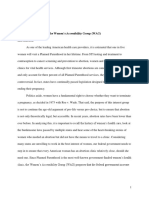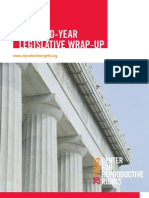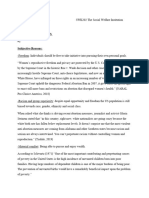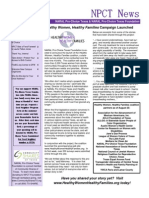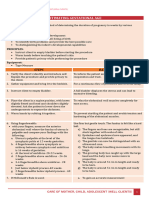0% found this document useful (0 votes)
25 views4 pagesPolicy Memo
This policy memo addresses the barriers to women's reproductive rights and proposes recommendations to enhance access to reproductive healthcare. It highlights the significant obstacles faced by marginalized communities and advocates for comprehensive legislation to protect and expand reproductive services. By implementing these policies, the memo aims to promote gender equity, public health, and individual autonomy in reproductive decision-making.
Uploaded by
jessicakghotraCopyright
© © All Rights Reserved
We take content rights seriously. If you suspect this is your content, claim it here.
Available Formats
Download as DOCX, PDF, TXT or read online on Scribd
0% found this document useful (0 votes)
25 views4 pagesPolicy Memo
This policy memo addresses the barriers to women's reproductive rights and proposes recommendations to enhance access to reproductive healthcare. It highlights the significant obstacles faced by marginalized communities and advocates for comprehensive legislation to protect and expand reproductive services. By implementing these policies, the memo aims to promote gender equity, public health, and individual autonomy in reproductive decision-making.
Uploaded by
jessicakghotraCopyright
© © All Rights Reserved
We take content rights seriously. If you suspect this is your content, claim it here.
Available Formats
Download as DOCX, PDF, TXT or read online on Scribd
/ 4





